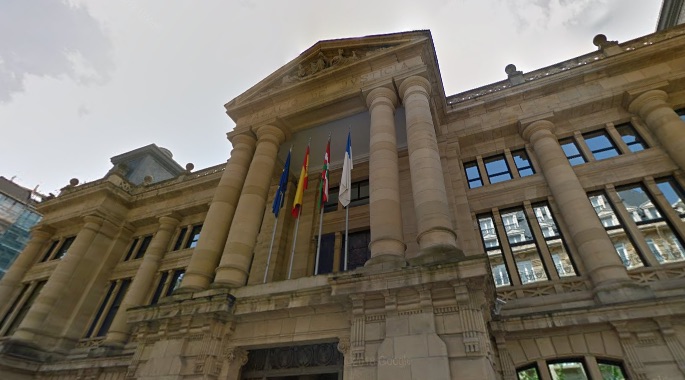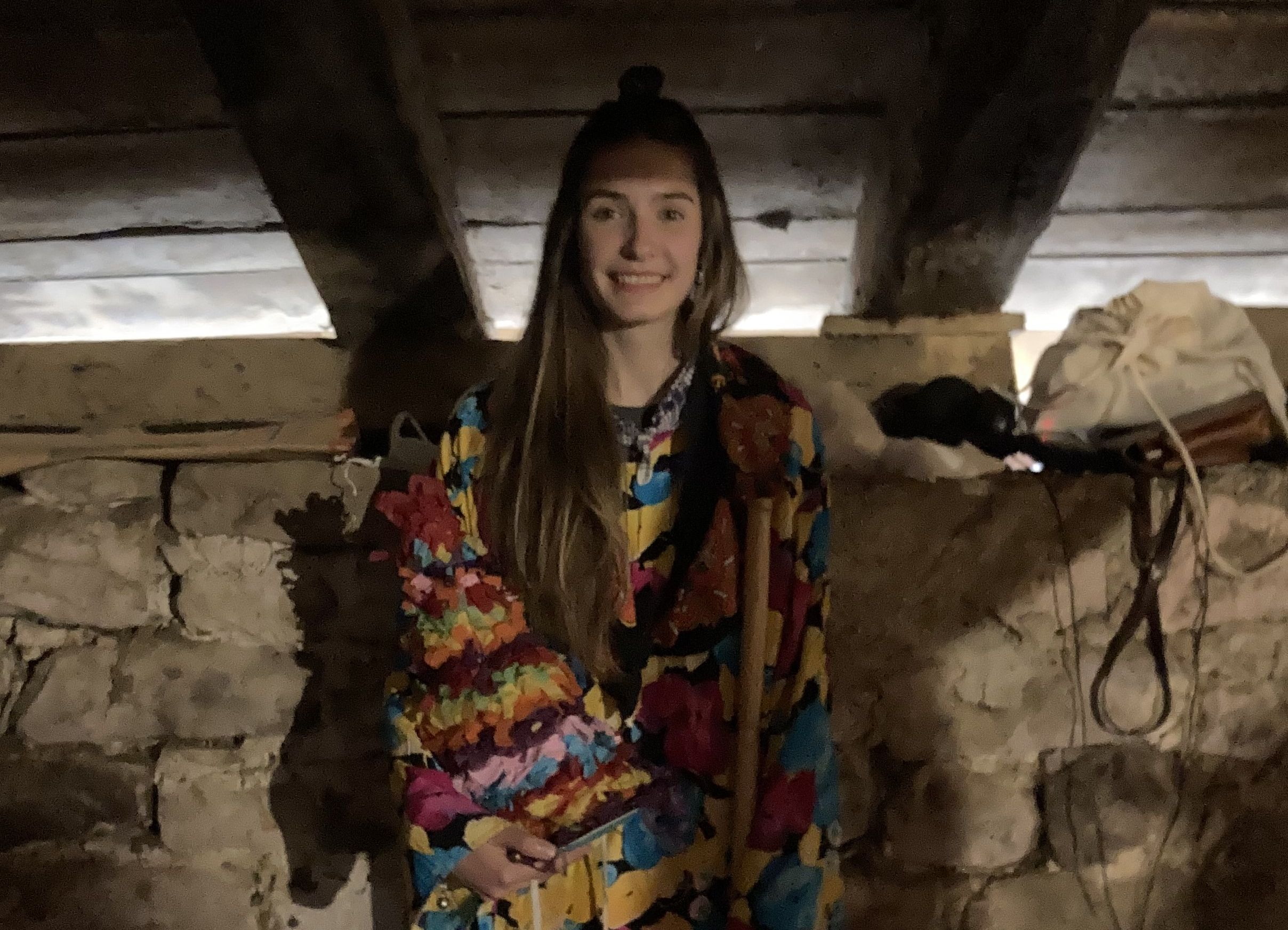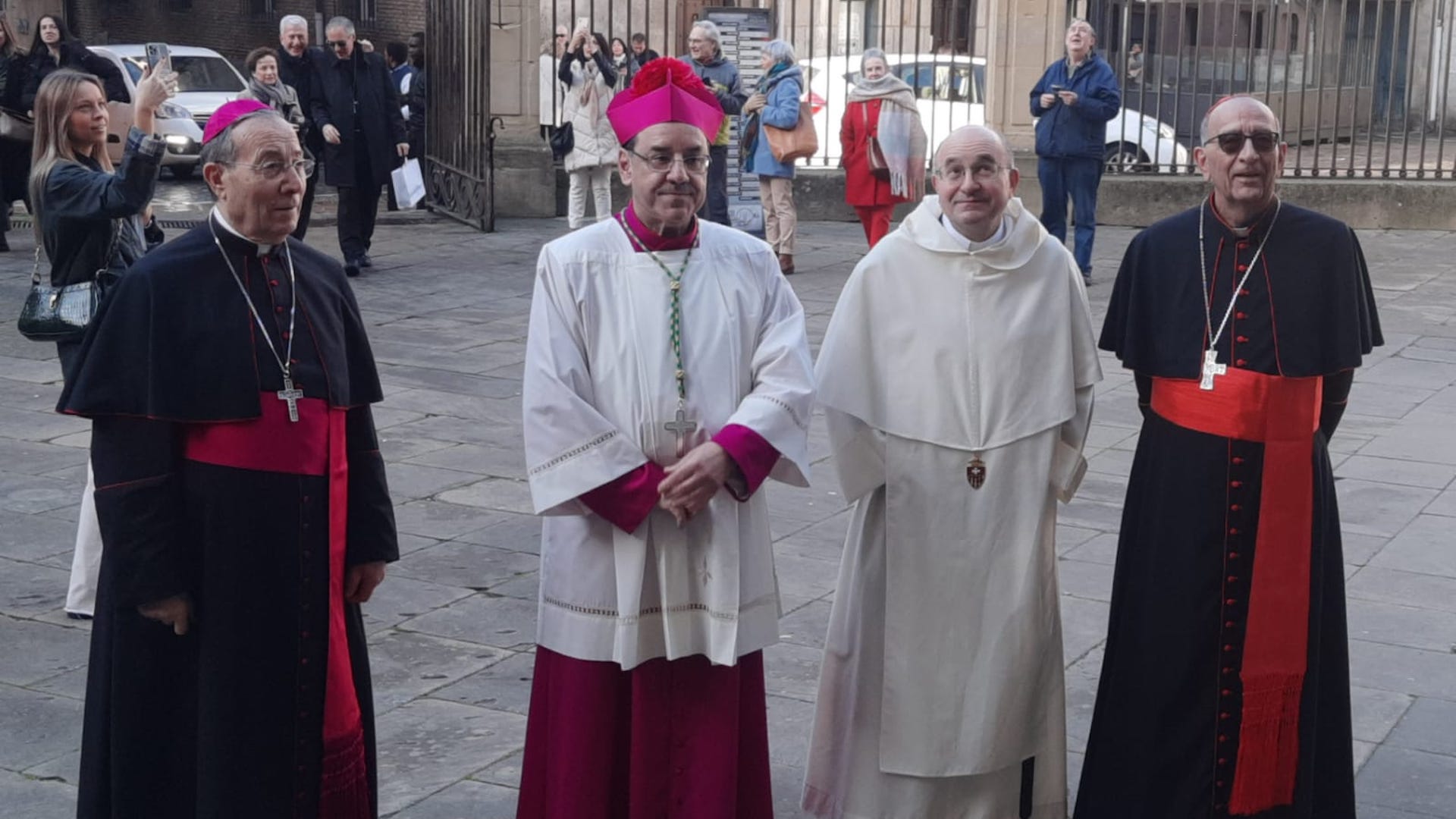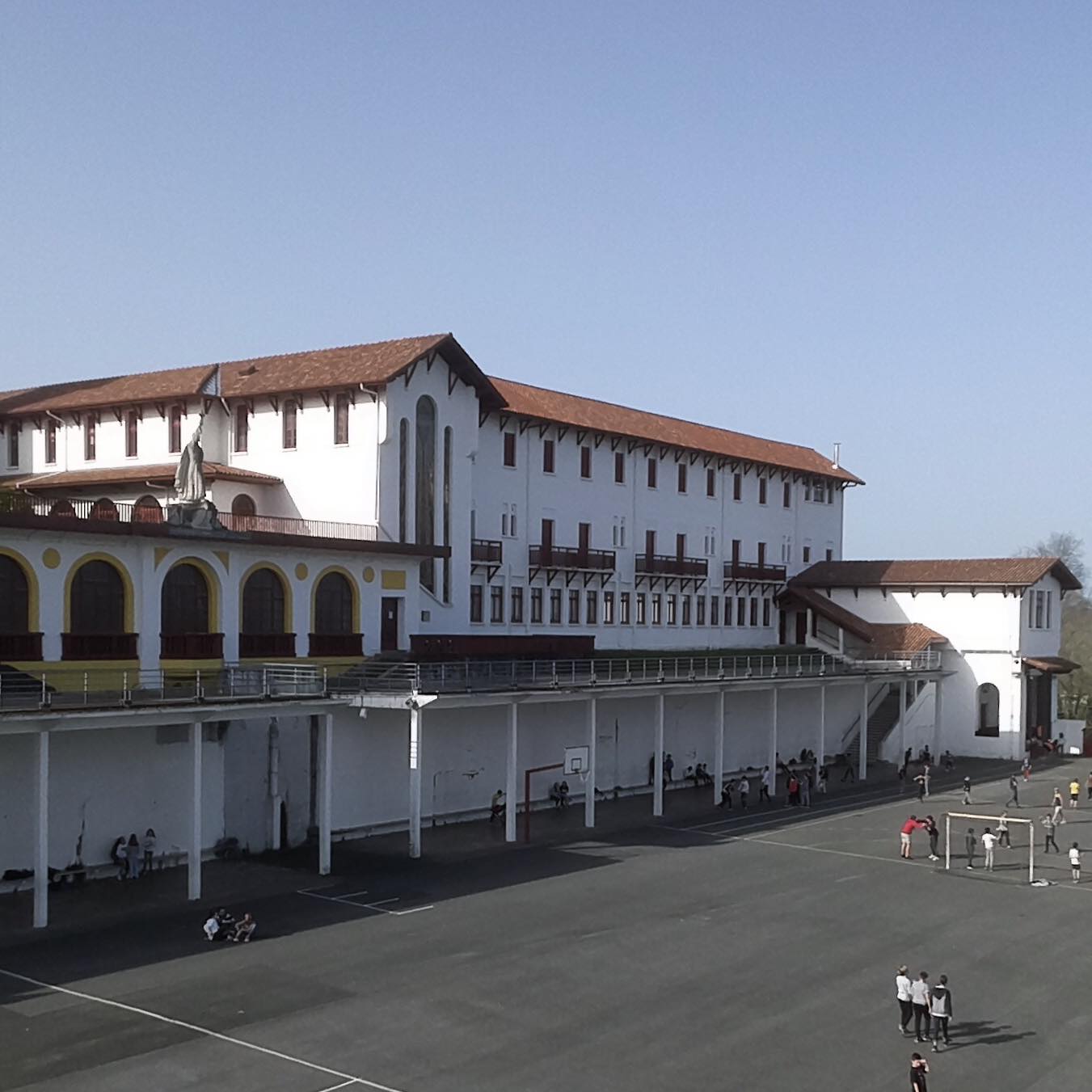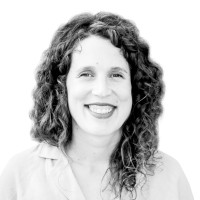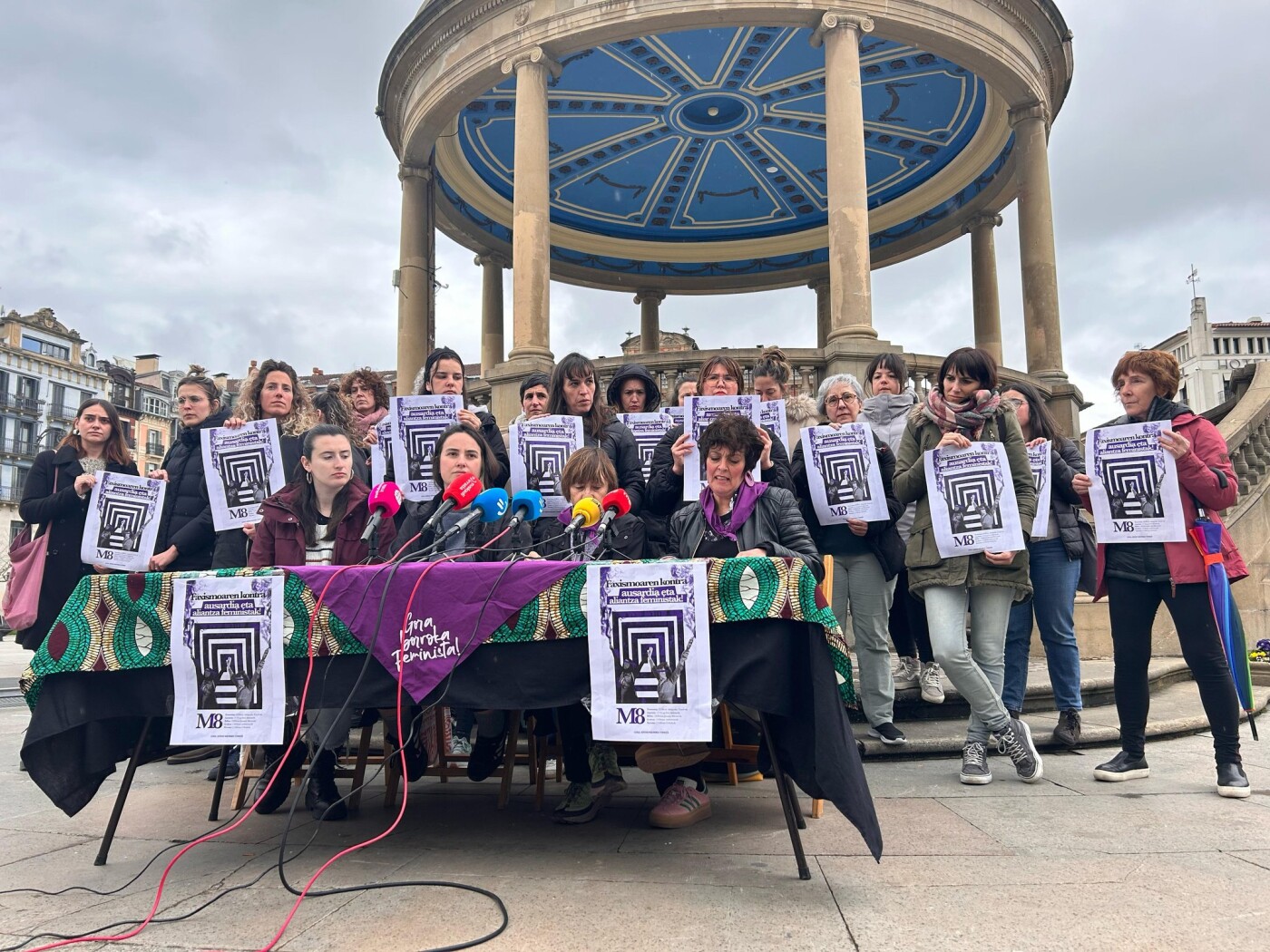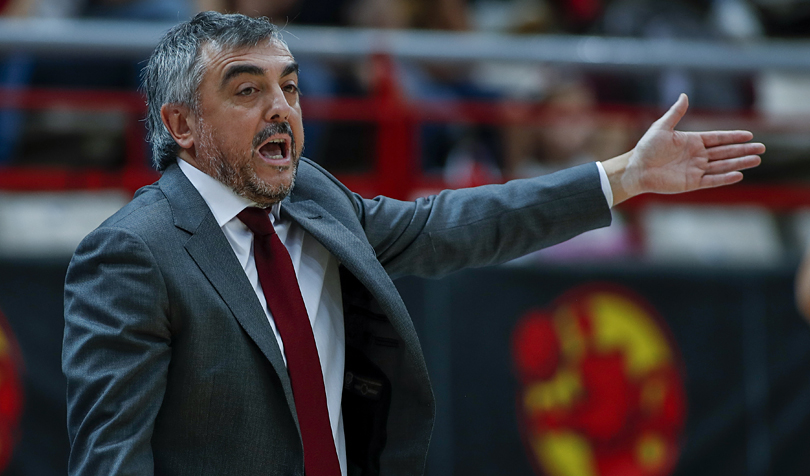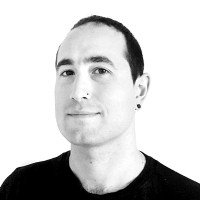"Often, with equality policies we do not reach women at risk of exclusion"
- During the last decade, Ana Txurruka has turned to the place where militancy and the institution cross. In a difficult balance, it has been maintained: on the street, Medeak has focused on the group and transfeminism, while at work he has focused on reaching as many and diverse women as possible and working from common points.

You are an equality technician. What's that like?
I learned the humanities, a career without a future or job opportunities, and once it was finished, I didn't know what to do. I was already a feminist, newly militant, and I knew that that world I liked and would like to work on. Just in that year, the UPV/EHU Master of Equality was created and I entered it, because I did not want to dedicate myself to research. It was a great thing for me, both in terms of learning and personal.
What did you learn?
In terms of its content, it is a master's degree in equality policies and institutional feminism is worked. There was another content perhaps less eye-catching: it was a powerful instrument and we also developed our consciousness. Although it has been lost year after year, we had a great feminist political interest both those who created and those who studied.
“Militancy and work feed back and enrich each other. However, in my case, the street has given more to the office than the other way around. Medeak has given me my principles, values and criteria. I’ve become a feminist with them.”
Is the profession now more stable and that is why it has changed?
There has been a process of normalisation and I believe that this has been an achievement of feminism and that we have to consider it a success, but in some cases that normalisation has softened the political content. The performance of the first equality technicians was very militant.
Why do we have to consider it a success?
The institutions have a responsibility to promote equality and to put an end to machismo, and that responsibility must be put into practice and resources must be made available. I believe that feminism has managed to get into the institutions, and if that struggle had not been done, the institutions would remain the same. Then we can think about how things are being done, if enough is being done, but I think it is essential that feminism or equality policies be in the institutions.
What has changed, for example?
15 years ago, a city council did not feel compelled to campaign against aggression, to promote co-education, to offer empowerment workshops for women... Now, although it is not a priority issue for many political parties, they dare not say no to this kind of thing. The point is that it often stays on the surface, and we will have to delve into it, but we have certainly made progress.
How was his first job as a technician?
I started in a project funded by the European Union, at Urola Garaia, to promote continuing education with a gender perspective. Work is a different reality from studies. I have very good memories. I learned a lot from my partner, I don't know as much as a technician or as a person.
On the other hand, when I started as a technician, I realized that people kept questioning my work.
Why?
I have always felt that the issue of equality is the issue of coffee. Anyone can say anything about it. There was always a man making jokes, a troubled man. For example, in the line of non-sexist language, boss
“Paul B. As Preciado said, an institution is not an abstract institution, but is done by people. In Arteleku, several people gathered together, and that’s why such strong things emerged.”
One said to me: “And now what, how and how are we going to say?” If you were working in the Human Resources area, I don't think you've been told that. When I was young, my blood was warm, but now I've learned to cope differently. In the same way, over the years, we have achieved legitimacy and people do not dare so easily to say these things.
You also participated in the Women's Corner of Arrasate.
The houses of women of Ermua and Mondragón have been, among others, great references. It seems essential, in policies of equality, to create a space of its own for the work of empowerment. To this must be added, of course, other transversal policies and to be carried out within the town hall, but I believe that it gives it the tools to live better the houses of women. Sometimes they're worth you, sometimes not so much, but it's a mere coincidence. That's what it is in San Sebastian. Not all the women of the city come, but they know that it is there, it becomes a reference, they can come once to participate in some project...
Then he was in Caritas.
Yes, I wouldn't think I was there, giving training in all the parishes of Bizkaia. It was very positive to work in an organization like Caritas, because I like to work with those who are in a worse situation, and in this case I was with women in a very vulnerable situation. In addition, I got a lot involved with the volunteers, with the workers and also with the users. I learned very well that the situation of all women is not the same, that we have very different needs, and that the answers also have to be that way: each of them is yours. The subjects we worked on in the Master’s Degree responded to the needs of a specific women’s profile, and the people I met in Caritas had nothing to do with that profile.
And did you take the objects that you had carried well?
Well, yes! For example, I really liked talking about violence with nuns, and so on. We shared a lot of things, and they know perfectly well the everyday reality of women, they don't engage in bullshit. It was very clear that that was the important thing: that we had to work from common ground and strengthen them.
“In classic feminism, porn is bad and it’s already. Thanks to queer feminism, we learned that you could do feminist porn and it was very liberating. It also reflects other sexualities and bodies.”
He has given many formations. What is taught in such cases?
I try to reconcile equality with whatever issue it is. For example, I was going to teach the equality module in female entrepreneurship courses, and I was talking about theory, of course, but I also had a desire to raise awareness. I wanted to shake the students' stuff. The staff is political, right? Well, we will certainly mention the conciliation measures for new companies, but let us see how we reconcile work inside and outside the home. The result is much more important to question the gender roles that have imposed us than to learn the law of equality. Overall I have received positive feedback, especially because I have worked with women.
What about men?
It's something else. When I was working at the City Hall in Donostia, I worked on a program of labor insertion for people at risk of exclusion. There I was cheerful to give equal formations, and I was filled with men studying welding, with incredible backpacks and lots of difficulties. I stayed there with great strokes, carried my powerpoints and some barely knew how to read. I also worked on the issue of violence and, of course, with the easier collectives go a few things, but with the very difficult collectives, so... These men were related to violence from birth, and that I raised violence was very powerful. I put some scenes from I give you my eyes and a guy got terribly angry and left because he himself had experienced that violence and now he was doing it.
I find a point of collaboration easier with women at risk of exclusion; more difficult with men. However, I believe that in my work we have to work with these kinds of collectives. Also with women, of course, because it is these groups that have the most needs and they are in the worst situation. Often, with equality policies, we do not reach these women.
How long have you been working in the Equality Area of San Sebastian?
Eight years later, the workbag was pulled out. I had doubts, but in the end I was encouraged, by the conditions of the city hall and because I was interested in the people that were there. There was the Equality Councilor, Ainhoa Beola, the advisor Agurtza Zubero, and they were pushing for a real feminist policy, which has not been neglected.
There I realized how important it was for feminism to make this claim, for there to be equality departments, for it to get budgets to implement equality policies... There were also three key axes: feminist politicians, feminist equality technicians (many militants) and a strong feminist movement, influenced from the outside.
You also belong to the transfeminist Medeak group. How did this group emerge?
The Plazandreok started to be part of the group. They had been militating in feminism for 20 years, and I learned a lot. For two years, I didn't open a mouth in the assemblies, I just heard it and I learned it as a sponge. In an instant we feel the need to create something of our own, both in content and in forms. Plazandreok's dynamic was to hold weekly meetings and follow the agenda. But we were 20 years old and we wanted to talk about leather, about our bodies, about the problems we had with our family ... We needed collective support, and Medeak gave us encouragement. Of course, we could also talk to the Plazandreok group, but what we needed was to live together, you know, as in the self-awareness groups of the 1960s.
And then?
After that initial introspective period, we started working out, doing street actions, and then we had a big turning point. Arteleku. There were four or five days and we met another feminism that did not exist in Euskal Herria. We find queer feminism. Suddenly a lot of doors opened to us. It wasn't exactly our context, but it gave us a lot of answers.
For example?
Drag king workshops had a huge impact on us. The queen drags are men, usually marics, they are sliced and a hyperbolic femininity appears. We do it with drag kings, but the other way around: the loggers hook us up with hyperbolic masculinity and see how masculinity is built, starting with small, crazy gestures, ending the body and clothing.
First of all, I realized how internalized femininity was. As a feminist and a lesbian, I thought I had it so overtaken, but what's going on! We have it embedded. On the other hand, it was then that we started working on Medeak's masculinity, which until then we were not interested at all. We don't like patriarchal masculinity, but in our home world there are other masculinities that we do want to throw away, because they question patriarchal masculinity.
They have also reflected on violence.
This issue is always present, women become feminists many times when we encounter violence, so it's when reality hits you. At Medeak we have always tried to think about how to respond to violence and we have done so in many ways: with anger, with anger, without knowing how to manage it...
In recent years, when institutional feminism has gained strength, from political convenience, a discourse has been developed around the theme, and in this society everyone is against violence. We wanted to make a different speech and, above all, to work on women's empowerment, we didn't want to talk about victimization. We want to put an end to violence not through the police, but through other means. That, politically, but as far as the individual is concerned, when we went out at night, and for us, that line has been very important: to respond to the macho aggressions, and to protect them collectively, firmly.
In conclusion, we will look at the present. The feminist movement seems to be booming.
It's in full bloom, and I'm half retired. A few years ago, I realized I had to rest. Work, militancy -- feminism took my whole life, I had nothing else. In a moment, I realized that maybe I wanted to do other things, that maybe I needed time to think about what I wanted to do. So, I slowed down and it's been very good for me.
The best thing is that I see new people, and less badly! If I go to a meeting and I meet the same people ten years ago, I'm on a Malaostia, because that means there's some problem with space. But I find new places and projects and I myself wouldn't do them now, but I love them. I am very pleased that there are many young feminists.
Hamabost urte daramatza berdintasunaren alde buru-belarri lanean. Donostiako Udalean egin ditu zortzi, eta hiri horretako Emakumeen Etxea du lorpen kuttun eta bulego; Medeak talde transfeministako militantzia, berriz, iparrorratz.
Antifaxismoari buruz idatzi nahiko nuke, hori baita aurten mugimendu feministaren gaia. Alabaina, eskratxea egin diote Martxoaren 8ko bezperan euskal kazetari antifaxista eta profeminista bati.
Gizonak bere lehenengo liburua aurkeztu du Madrilen bi kazetari ospetsuk... [+]
11 adin txikikori sexu erasoak egiteagatik 85 urteko kartzela zigorra galdegin du Gipuzkoako fiskaltzak. Astelehenean hasi da epaiketa eta gutxienez martxoaren 21era arte luzatuko da.
MAITE: (biharko eguna antolatzen bere buruaren baitan) Jaiki, gosaldu, bazkaria prestatu, arropa garbitu, etxea garbitu, gizon hori jaiki, seme-alabak jaiki, hiru horien gosaria prestatu, haiek agurtu, erosketak egin, lanera joan, seme-alabak eskolatik jaso, merienda eman,... [+]
Matxismoa normalizatzen ari da, eskuin muturreko alderdien nahiz sare sozialetako pertsonaien eskutik, ideia matxistak zabaltzen eta egonkortzen ari baitira gizarte osoan. Egoera larria da, eta are larriagoa izan daiteke, ideia zein jarrera matxistei eta erreakzionarioei ateak... [+]
Lantzeko inauteri txikien kalejira ikusle guztien begietara urtero modukoa izan zen. Txatxoak, Zaldiko, Ziripot eta Miel Otxin herriko ostatuko ganbaratik jaitsi eta herritik barna bira egin zuten txistularien laguntzarekin. Askok, ordea, ez zekiten une historiko bat bizitzen... [+]
Elizak 23 kasu ditu onarturik Nafarroa Garaian. Haiek "ekonomikoki, psikologikoki eta espiritualki laguntzeko" konpromisoa adierazi du Iruñeko artzapezpikuak.
15 urteko emakume bati egin dio eraso Izarra klubean jarduten zuen pilota entrenatzaile batek.
Lestelle-Betharramgo (Biarno) ikastetxe katolikoko indarkeria eta bortxaketa kasuen salaketek beste ikastetxe katoliko batzuen gainean jarri du fokua. Ipar Euskal Herriari dagokionez, Uztaritzeko San Frantses Xabier kolegioan pairaturiko indarkeria kasuak azaleratu dira... [+]
Uribe Kosta BHI institutuko hainbat ikaslek salatu duenez, mezu "iraingarriak, matxistak eta homofoboak" jaso dituzte Batxilergoko beste ikaskide batzuengandik. Horrez gain, gaineratu dute mezuak irakasle bati ere bidali dizkiotela eta beste ikasle batzuen... [+]
Bi neska komisarian, urduri, hiru urtetik gora luzatu den jazarpen egoera salatzen. Izendatzen. Tipo berbera agertzen zaielako nonahi. Presentzia arraro berbera neskek parte hartzen duten ekitaldi kulturaletako atarietan, bietako baten amaren etxepean, bestea korrika egitera... [+]
Martxoak 8a heltzear da beste urtebetez, eta nahiz eta zenbaitek erabiltzen duten urtean behin beren irudia morez margotzeko soilik, feministek kaleak aldarriz betetzeko baliatzen dute egun seinalatu hau. 2020an, duela bost urte, milaka emakumek elkarrekin oihukatu zuten euren... [+]
Neska adingabeari sexu abusuak era jarraituan egin zizkiola frogatutzat jo du Bizkaiko Lurralde Auzitegiak.
1989tik 2014ra, Frantzia mendebaldeko hainbat ospitaletan egindako erasoengatik epaituko dute. 74 urte ditu Joel Le Scouarnec zirujau ohiak, eta espetxean dago beste lau sexu eraso kasurengatik.
Lau mila karaktere ditut kontatu behar dudana kontatzeko. Esan behar ditut gauzak argi, zehatz, soil, eta ahalko banu polit, elegante, egoki. Baga, biga, higa. Milimetrikoki neurtu beharra dut, erregelaz markatu agitazioa non amaitzen den eta propaganda non hasi. Literarioki,... [+]
Bai, bai, holaxe. Ez naiz harago joatera menturatzen. Pleonasmo bat dela? Tautologia bat agian? Baliteke, baina egia-oste deitzen dioten garai honetan, oinarri-oinarrizko egitateak beharrezkoak dira. Begira, bestela, “Ez da ez!” lelo indartsuari. Bagenekien hori... [+]












